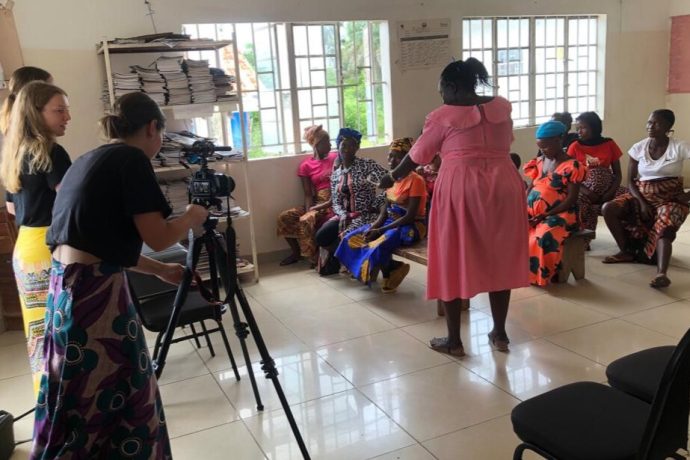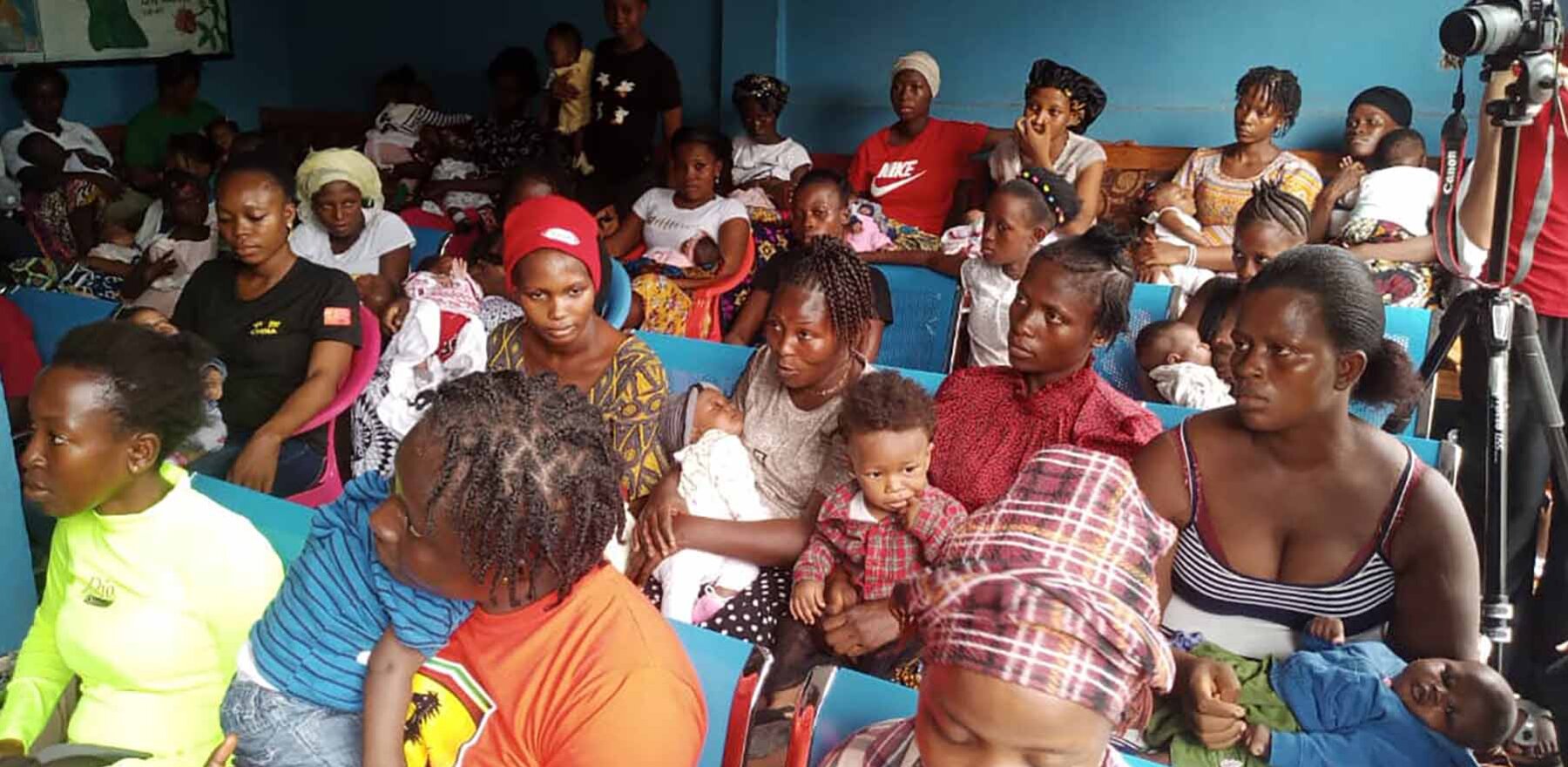The American Council of Learned Societies published a story about Mothers of Sierra Leone, a Global Social Impact Fellowship project supported by Lehigh's office of Creative Inquiry
Mothers of Sierra Leone, an initiative that uses documentary film to promote health-seeking behavior amongst mothers in Sierra Leone, has received recognition from the American Council of Learned Societies (ACLS), a preeminent nonprofit federation supporting American scholarship in the humanities and interpretive social sciences.
ACLS published a story this month highlighting Mothers of Sierra Leone, which it describes as a best practices example of an undergraduate academic program integrating the humanities, social sciences, and sciences are increasingly common.
“University-based social impact projects represent another opportunity to bridge disciplines and in so doing, make a difference,” the article reads. “At Lehigh University, a project focused on maternal health in Sierra Leone, one of many Global Social Impact Fellowship projects supported by the office of Creative Inquiry, provides a case study in interdisciplinary innovation.”
The full ACLS article can be read here.

The Mothers of Sierra Leone project has been supported by Lehigh’s Office of International Affairs (OIA) as recipients of Faculty Internationalization Grants, which support Lehigh faculty members who seek to pursue international research and teaching projects.
Michael Kramp, Professor of English, and Fathima Wakeel, an Associate Professor in the Department of Community & Population Health, received a $4,725 grant last year to support the continuation of the initiative, which has received Faculty Internationalization Grant funding in previous years as well.
Students are involved in filming, editing, interviewing, and distributing documentaries highlighting innovations in prenatal care, clinical treatment, emergency surgery, postpartum care, and more. These documentaries are now shown in Sierra Leonean hospitals and other locations on a daily basis, demonstrating the effectiveness of health innovations in the country.
“What Mothers of Sierra Leone demonstrates is that even when students may not have all the necessary skills at the beginning of a project, they can learn by collaborating,” the ACLS article reads. “When they are supported and mentored, they can contribute to interdisciplinary initiatives that have real-world impact and that change lives.”
Mothers of Sierra Leone also includes a research component, with focus groups and surveys studying the efficacy of documentary film as a tool to improve maternal health outcomes in rural and remote locations where advanced technologies are limited and often poorly used, resulting in increased health disparities and preventable maternal mortalities.
“Our work demonstrates how complex health challenges require interdisciplinary approaches and strategies,” Kramp previously said. “We are not going to invent our way out of this health crisis in Sierra Leone with some new technology; we need to think across disciplinary divides to address this problem of maternal mortality.”
Wakeel said in the ACLS story: “I think that the beauty of our work is that our students have the unique opportunity to engage in community-engaged research using a humanistic lens that foregrounds the voices of the women and healthcare workers in Sierra Leone.”
Formed in 1919, ACLS is a nonprofit federation of 80 scholarly organizations that supports the creation and circulation of knowledge that advances understanding of humanity and human endeavors in the past, present, and future, with a view toward improving human experience. ACLS holds a core belief that knowledge is a public good.
